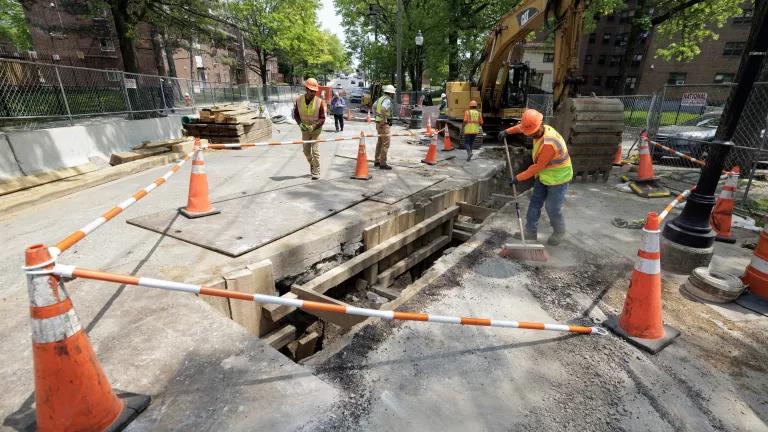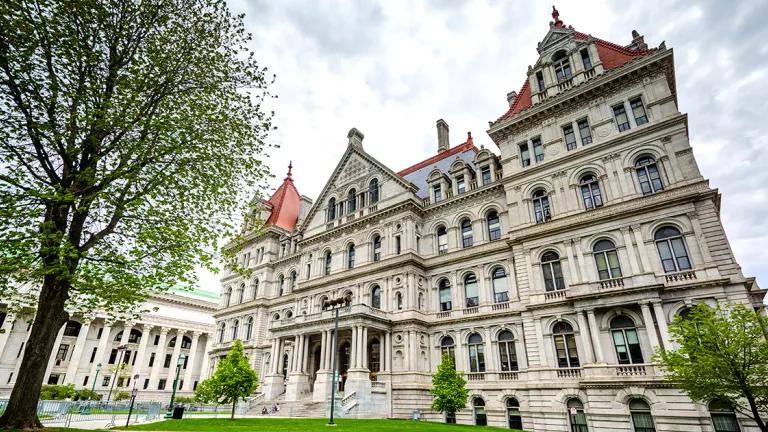New York Bans Utility Shutoffs during COVID-19 Emergency
New York is the first state to act via legislation to establish a statewide moratorium on all utility shutoffs—water, gas, electric, and telephone, including both publicly- and privately-owned utilities.

Learn more about NRDC’s response to COVID-19.
Governor Cuomo of New York recently signed legislation (Laws of 2020, Chapters 108 and 126) banning the shutoff of residential utility services during the COVID-19 crisis. This new law is sweeping and precedent-setting: New York is the first state to act via legislation to establish a statewide moratorium on all utility shutoffs—water, gas, electric, and telephone, including both publicly- and privately-owned utilities. Other states have done so by some combination of executive order or utility commission order, with legislation playing a supporting role on water in at least one instance. (We are tracking statewide water shutoff moratoria, including some that have already expired, here.)
Utility services are critical during COVID-19—amid financial fallout
Access to utility services are critically necessary for people to protect themselves during the COVID-19 pandemic. As New Yorkers are staying at home to protect themselves and their families, the need for water, gas, electric, and telecommunications services are even more critical than ever. Indeed, public health officials are correctly telling New Yorkers to “wash their hands” during this public health emergency. But for residential utility customers and families, this is an impossible task if their water is shut off for non-payment of a water bill.
Millions of New Yorkers are already unemployed due to economic fallout of COVID-19 and will need significant time to regain their financial footing—and the ability to pay their bills—as the state begins its economic recovery. Available data from other states and projections for New York State specifically, suggest that millions of New Yorkers are likely already behind on their utility bills, accumulating substantial arrears that would subject them to shutoff at their utility’s discretion without guaranteed protections from the state.
Key provisions of the bill
This new law provides several important safeguards for residential utility customers by:
- prohibiting shutoffs during the COVID-19 state of emergency for non-payment of a utility bill;
- requiring reconnection, within 48 hours of disconnection, for utility service that had been shut off during the emergency;
- extending the moratorium on utility shutoffs for 180 days beyond when the state of emergency has been lifted or has expired (no later than March 31, 2021 as per Laws of 2020, Chapter 126) for customers that have experienced a change in financial circumstances due to the COVID-19 emergency;
- requiring the utility to offer a restructuring of payments owed to the utility, without requiring a down payment or assessing late fees or penalties, for customers that have experienced a change in financial circumstances due to the COVID-19 emergency; and
- requiring the utility to inform all customers of their right to have continued utility service during the COVID-19 state of emergency and of the opportunity to restructure their payments.
Further protections are needed for true “utility justice”
One limitation of this new law is that it requires reconnections only for utility services that were terminated during the COVID-19 state of emergency. And yet, utility services that were disconnected prior to the COVID-19 state of emergency are no less critical to public health and safety. Therefore, in addition to the protections included in this new law, it remains vital to ensure that service is restored promptly to all families, even if they were disconnected before the state of emergency began.
Moreover, when the shutoff moratorium expires, many customers will be faced with accumulated arrears that they are unable to pay off, even with an extended payment plan. Imagine having months of accumulated bills and needing to pay those off on top of your monthly bill, in the middle of an ongoing economic crisis.
Unlike electric and gas utilities, there are no statewide programs for low-income water assistance, and few local ones. Ultimately, customers unable to pay will need additional financial assistance, including some level of arrearage forgiveness, to keep the water on. Congress, states, and utilities will all have important roles in crafting a solution that works.
This week’s new law is a big step forward to achieve “utility justice” for marginalized communities. These utility services are vital during this current emergency and, indeed, in everyday life, and their availability should not depend on who can afford them. Let’s keep building on it.


